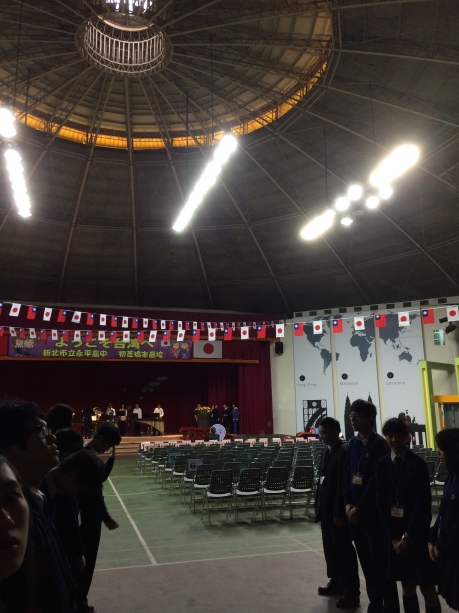After getting a full view of the battlefield from the fighter jet, I felt over-qualified to be joining the infantry on the Taiwanese main assault. The skirmishers had gone in already, I’d flown above the battle and missed most of my Japanese targets, and now we were going in for the first frontal ground attack.
The commanders gathered us into attack squads of about 10 each. Training with the commanders since last weekend, I’d come to realize that they were incompetent. They were hesitant to give any orders, had little control over the Taiwanese infantry, and preferred to wait for the generals to step in instead of just doing something first and questioning it later. Last saturday, I’d almost complained to the generals about the commanders’ incompetence.
We were thirty minutes late to intercept the incoming Japanese troops. We were quickly briefed, again, on this new weapon called “water dumplings”.
“How do you use this weapon on the Japanese? With English?” The commander of my squad said, half testing us, half hoping that we would tell her what to do.
“You wrap the filler with the wrapper, then nuh-nuh-nuh,” one soldier said, gesturing with her hands, intentionally failing in the last part of her sentence, just like the commander, because she had split intentions. Half was her being scared of being correct, and half was her not knowing the words in English. I wanted to jump in.
“Yeah,” the commander said, suddenly seeming like a soldier herself, lowering herself to our status by not taking control.
The enemy was upon us and we frantically deployed the “water dumplings”. They were coated in an incendiary called “Taiwanese culture” which made the new weapon even more devastating.

The weapon seemed to be effective, as you can see in this action shot. Look at their cheeks! Water dumplings!

With my 99% English ability and one squad member’s 70% Japanese ability, we successfully stopped the enemy from advancing using the water dumplings dripping with Taiwanese culture.
After the smoke cleared, my squad was still good for the most part, but a few members had some burns. The Japanese enemy was hit more than we were, which was good, and they had fled toward the hills in the distance. The commander stumbled next to me and pleaded that we continue with the attack. We trudged forward, the generals rumbling past us in their jeeps, and the commanders lagging behind us with the weight of their fears and insecurities.
